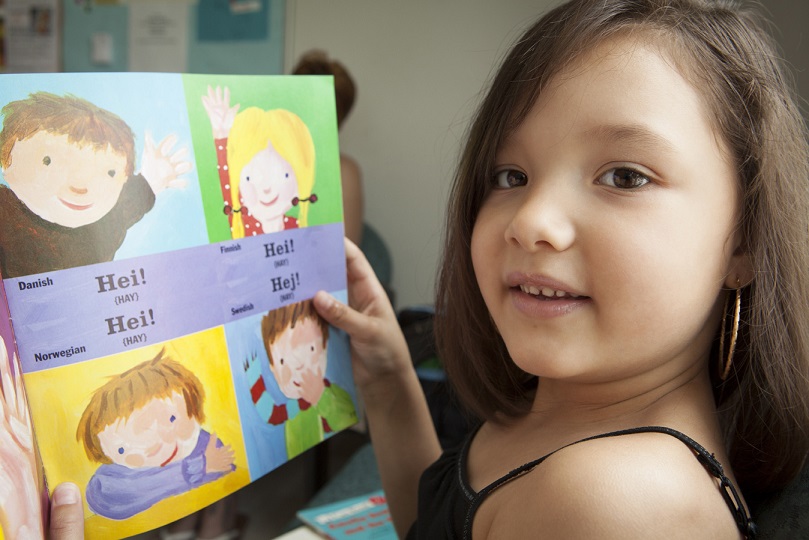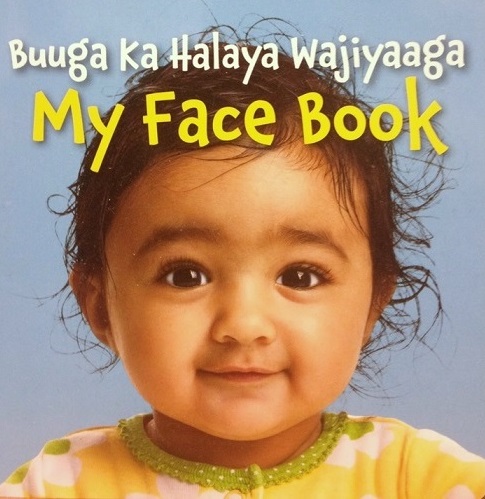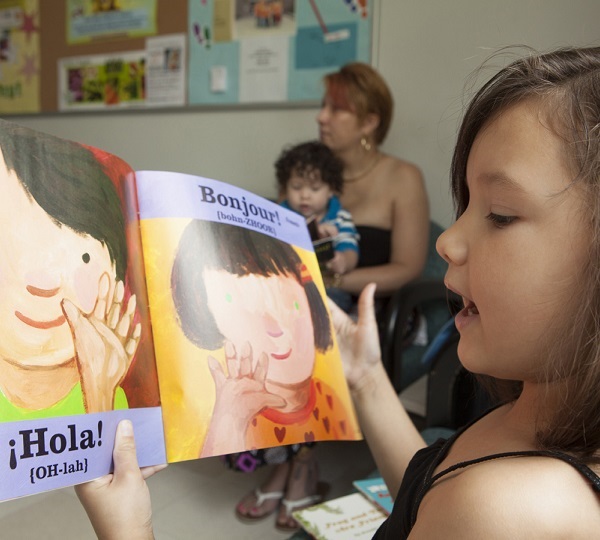The Reach Out and Read program has a huge impact on every family we serve because we are able to provide books that meet the specific needs of different families. Our clinics encounter patients who are culturally diverse and often unable to read or speak English.

For these families, we offer bilingual and foreign language books in 27 different languages from Arabic to Vietnamese at well-child visits for ages 0-5 years old. Children in these families will usually go on to attend an English-speaking school, making bilingual books especially valuable in helping them get ready for kindergarten.
Bilingual books have a number of unique benefits: They prevent language delay that some English language learners may experience, and they build vocabulary in the reader’s home language. However, the benefits of bilingual books go far beyond the measurable language effects. Here are some of the benefits of the foreign language and bilingual books that RORKC offers:
1. Bilingual books encourage parents to read in their home language. Parents who do not speak any or very much English may not be comfortable reading English-only books to their children. Being read and talked to (in any language) is important for building those pre-literacy skills so babies can be ready to learn once they start school. Strong pre-literacy skills in the child’s home language prepare their brains to learn reading or writing and improve their capacity to learn both languages. For very young children, learning a language is not the only goal: Building strong neural connections is also important.

2. Bilingual books build vocabulary in both languages. Bilingual children may have smaller vocabularies in each language than their peers (though their combined vocabulary is often the same or greater). This can become a problem once they begin school, especially since “playground language” does not expose children to concepts that they need to know for school in their second language. Bilingual books familiarize children with “academic language” in both language, preparing them to succeed in kindergarten and beyond.
3. Bilingual books help children feel included. It is important for children to find themselves represented in stories and illustrations. If their family speaks a language that is not common where they live, they may begin to feel alienated. For languages like Burmese and Urdu, it can be hard to find any resources for children at all. Bilingual books and foreign language books can provide children with much-needed representations of their home language, or even their race and culture.
4. Bilingual books highlight other cultures. Bilingual books are also a wonderful way to help young children learn about and become more accepting of other cultures and people. Learning about other people can boost children’s social and emotional development.
5. Bilingual books are fun. We know reading is a lot fun. Languages can be fun too!

